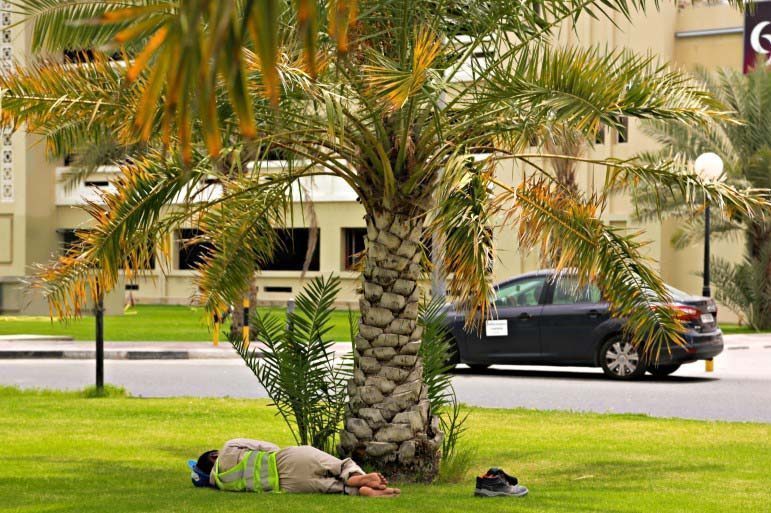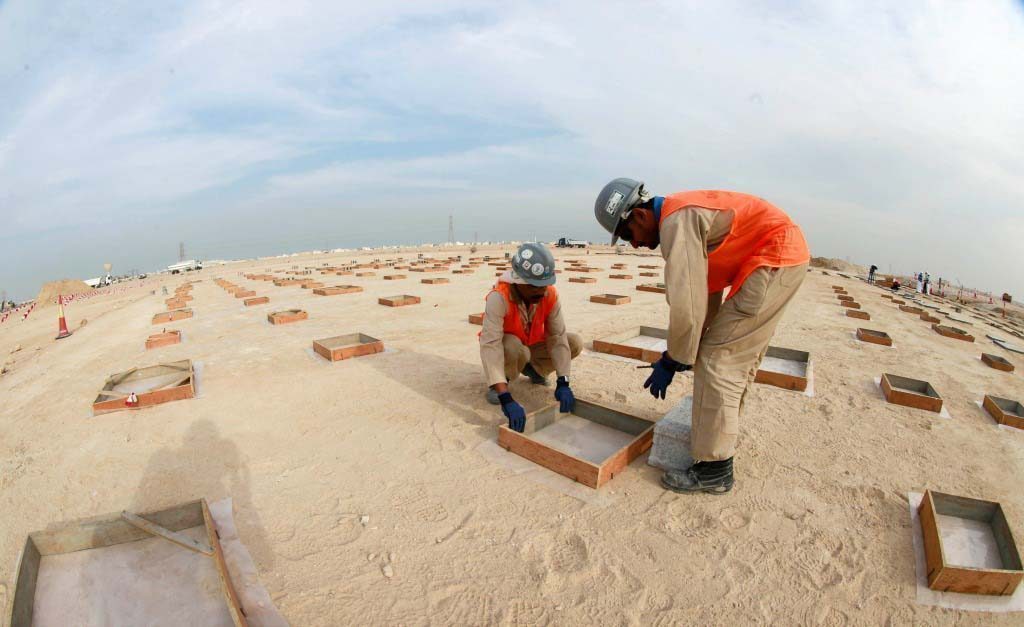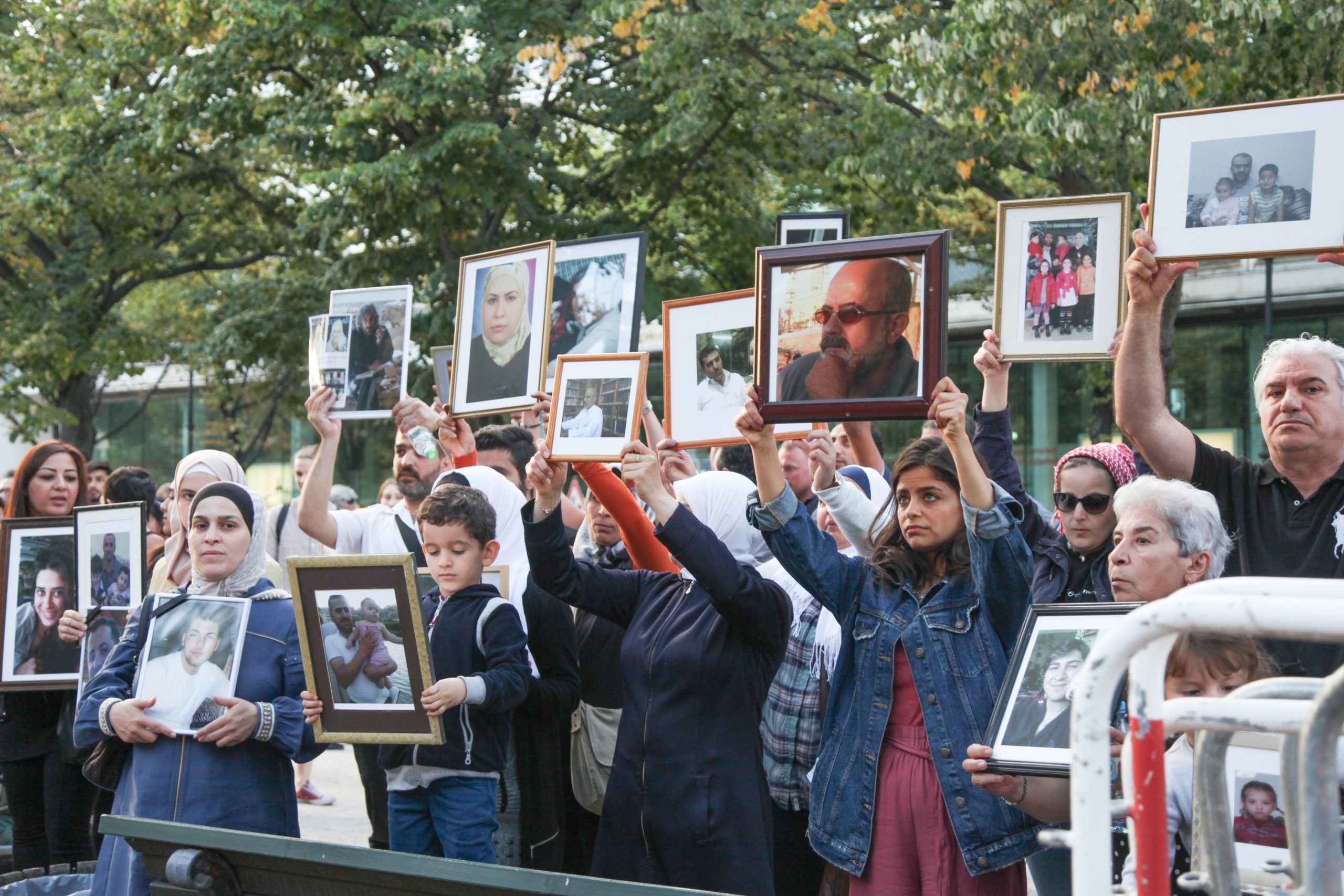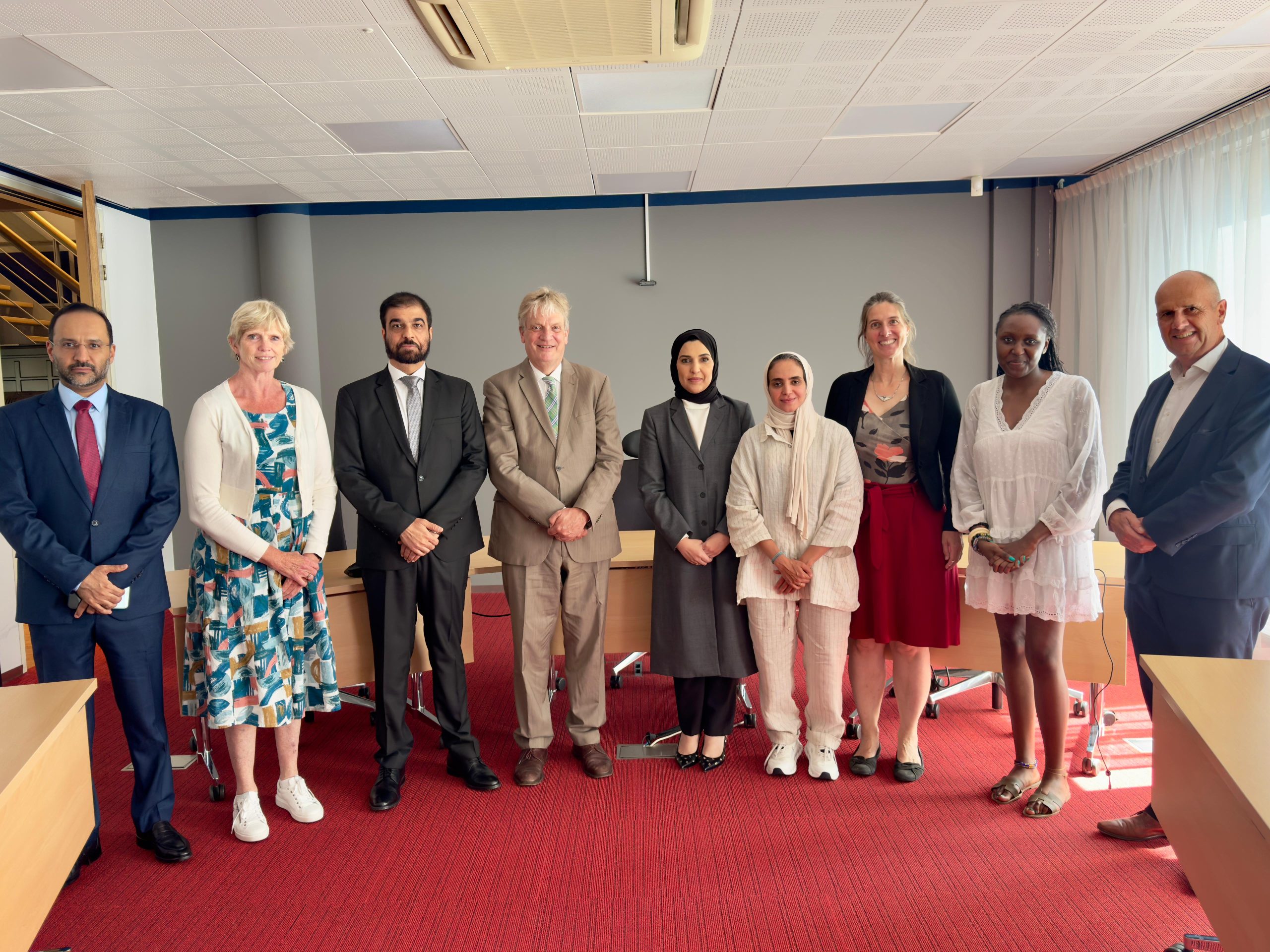
Despite enjoying better living conditions than most of Qatar’s blue-collar expats, the construction workers tasked with building the country’s first World Cup stadium are paid just as little as everyone else, the Guardian has reported.
During a recent visit to Qatar, the newspaper’s reporters spoke to workers who said that they make QR900/month, plus QR225 for food allowance (a total of $308).
Pay slips also showed that some of the men had not been paid the proper overtime wages outlined by a 50-page worker’s rights charter that Qatar’s Supreme Committee for Delivery and Legacy (SCDL) released in February.

The committee is responsible for preparing the host stadiums ahead of the 2022 World Cup, and the Al Wakrah stadium is the first facility under construction.
According to the charter, companies could lose their contracts with the SCDL if they do not pay employees in a timely manner, provide medical care to workers and ensure access to sanitary living conditions, among other stipulations.
Speaking about the working and living conditions of the Al Wakrah stadium employees in March, the SCDL said that some 108 men had been hired to work on the project eight hours a day, six days a week.
They ate three meals a day and had access to internet, television and recreational facilities. But at that time, the SCDL declined to discuss the wages of the employees when asked by Doha News.
Official response
Though contractor Amana, which the Guardian singled out over the failure to pay adequate overtime wages, is in violation of the SCDL’s charter, the company was hired before the new working conditions had been laid out, the committee said in a statement.
Amana has also been working with the SCDL to improve conditions, the statement continued:
“SC audits have verified that all workers are paid on time by electronic transfer once per month. However, as has been identified, there are challenges with calculation of overtime pay and hours and we are working with the contractor to rectify any noncompliance.”
Another issue is that workers on the stadium project also said their employer had their passports, which can be construed as illegal under Qatari law.
In response to this, the SCDL said that workers were provided the option of voluntarily handing over their passports for safekeeping, and were given full access to their documents at all times. It added:
“Any involuntary confiscation of a passport, whether at Amana or any other contractor, is expressly forbidden and will be investigated.”
Speaking to Doha News, Amnesty International researcher James Lynch said the Guardian’s latest report should be “an early wake-up call for the Supreme Committee.”
“While it’s obviously good to see the efforts being made to provide decent living conditions, they have to ensure that they have the right systems in place to stamp out the less tangible forms of exploitation, particularly around pay.
In a way it is a positive thing that this report has emerged now, before the bulk of the World Cup workers have been recruited to construct stadiums. They should take a hard look at what’s gone wrong and make sure it can’t happen again.”
Workers’ charter
When the SCDL’s charter was released in February, rights groups welcomed the move as a positive first step.
But they also pointed out that the new rules would not cover the vast majority of Qatar’s hundreds of thousands of laborers, including those working on projects relevant to the World Cup, such as the rail system.
By one estimate, more than a million blue-collar workers will be needed to help the country prepare for the tournament.
But an SCDL spokesman previously told Doha News that only 55,000 to 80,000 men would be directly involved in the construction of stadiums and training facilities and thus covered by the new workers’ standards.
However, the hope has been that the charter would motivate other organizations into acting similarly, officials said.
Six months later, it is unclear if any other companies were inspired to improve their own working conditions.

However, on the government level, some changes are in the works, including a requirement to pay all workers their wages by direct bank transfer.
Other moves that have been discussed but not yet implemented include the relaxing of the exit permit system and a provision that would make it easier for expats to change jobs.
For now, despite their low pay, workers on the Al Wakrah stadium site continue to be treated better than most low-income expats in Qatar.
According to a 2011 survey of 1,000 laborers by Qatar’s National Human Rights Committee, the average blue-collar expat here makes QR800-QR1100 a month ($219-$300). The figure is one that almost 70 percent said they were unhappy about.
Additionally, one-third of those questioned had never received their wages on time, about half lived in a room with six beds and 13 percent said they wanted to go home.
Thoughts?







